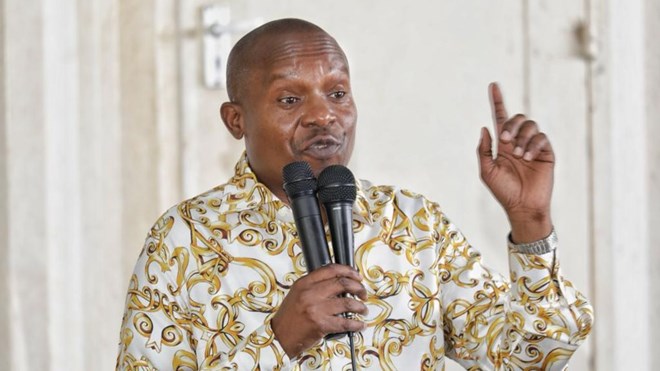
Thursday July 6, 2023

Kenya's Interior Cabinet Secretary Kithure Kindiki. PHOTO | NMG
Kenya will delay the planned phased reopening of its border with Somalia to address the recent wave of terror attacks and cross-border crime.
While at the Dadaab refugee camp, Kenya Interior Cabinet Secretary Kithure Kindiki said the decision is due to sustained Al Shabaab attacks in border counties.
In June alone, Mandera, Wajir, Garissa and Lamu counties recorded more than fifteen terror attacks, leaving more than twenty people dead, most being security officers.
“Kenya and Somalia have been having a plan to reopen our border points in Mandera, here in Liboi, Kiunga and other areas along the border. The plan will go on but at the moment we are delaying it,” Kindiki said.
“In the past one month, we have noted and experienced disruption of peace and security and we have stopped that plan for a period to allow us to deal with the militants,” he added.On May 15, Kenya announced a plan to officially reopen its border posts with Somalia in Mandera, Lamu and Garissa within 90 days.
The announcement was made after high-level consultations in Nairobi between Kithure Kindiki and his Somalia counterpart Mohamed Ahmed Sheikh.
Reopening of the border was to effectively end a 12-year barricade that began in 2011 when Kenya launched Operation Linda Nchi to fight the influx of Al Shabaab fighters into the country.
"We have resolved that the border between Kenya and Somalia will be reopened in phases. First to open is Bula Hawa in Mandera in 30 days, next is Liboi (Mandera) in 60 days and Ras Kamboni (Lamu) in 90 days," Kindiki said then.
Cross-border links
The government has also been mulling adding a fourth border post in Wajir County.
The minister said the border communities in both countries had so much in common and that there was a need to strengthen cross-border communication.
Bula Hawa post in Mandera was due for reopening on July 1.
Mandera has been the most affected with the recent terror attacks due to its proximity to Somalia.
“It was not going to be easy to have the border opened. We have people benefiting through goods smuggling and the Al Shabaab are collecting tax from these businesses inside Somalia,” Mr Ali Abdi, a local of Mandera said.
While announcing the continued closure of the border, Kindiki did not give more details but only cited terrorism as the main cause.
The porous border has seen the militants cross at will, attack and cross back.
The influx of militants into Kenya has also been due to ongoing crackdown inside Somalia. In August last year, the Somali government launched an all-out war against the Al Shabaab, prompting the government of Kenya to heighten security along the border to prevent an overflow of fleeing militants into the country.
Kenya is a major contributor of troops to the African Union military operation against the Al Qaeda-linked Al Shabaab, which has been waging a violent insurgency in Somalia for more than 15 years.
Kenya and Somalia share a 680-kilometre land border.